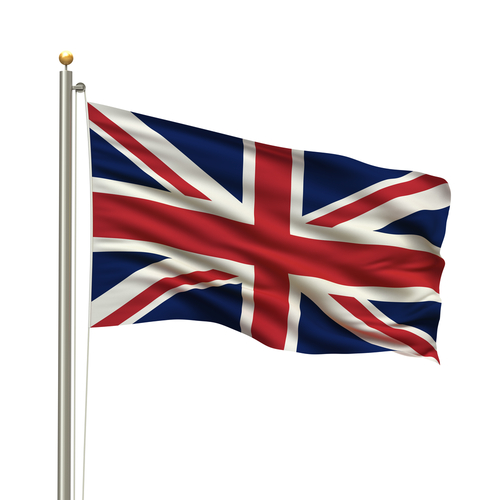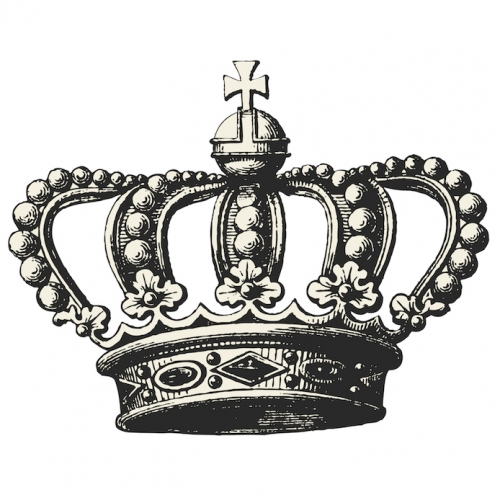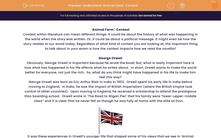'Animal Farm': Context
Context within literature can mean different things. It could be about the history of what was happening in the world when the story was written. Or, it could be about a political message. It might even be how the story relates to our world today. Regardless of what kind of context you are looking at, the important thing to talk about in your exam is how the context impacts how we read the novella?
George Orwell
Obviously, George Orwell is important because he wrote the book! But, what is really important here is how what has happened in his life affects what he writes about. In short, Orwell wants to make the world better for everyone, not just the rich. So, what do you think might have happened in his life to make him feel this way?
George Orwell was born as Eric Arthur Blair in India in 1903. Orwell spent his early life in India before moving to England. In India, he saw the impact of British Imperialism (where the British Empire took control of other countries). Upon moving to England, he received a scholarship to attend the prestigious Eton boarding school. Orwell wrote in ‘The Road to Wigan Pier’ that his family were “lower-upper-middle class” and it is clear that he never felt as though he was fully at home with the elite at Eton.

It was these experiences in Orwell’s younger life that shaped some of his views that we see in ‘Animal Farm’. He saw the divide between the wealthy and poor first hand at Eton and in India. This unfairness led him to campaign for equality and, as a result, he became a socialist. In 1936, he travelled to Spain to fight against the dictatorship of Francisco Franco. This experience heightened Orwell’s socialist views and he was particularly critical of Communist Russia after seeing the Tsar replaced by a different dictator – Stalin. We can see parallels between Communist Russia and ‘Animal Farm’ – and this is not by accident. The book seeks to highlight Orwell’s own thoughts about how badly the lower classes were treated, even in seemingly socialist regimes, such as Russia. If you think about it, Orwell makes us feel sympathy for the lower animals or characters such as Boxer – why? Perhaps it is because he feels most sympathy for those who are lower class because of what he has seen and how he’s been treated.
This aspect of Orwell’s beliefs can be seen in most famous stories, ‘Animal Farm’ and ‘1984’. In fact, we can also see this through Orwell’s legacy – at Eton, they have an ‘Orwell Award’ which enables boys from poorer, less privileged backgrounds, to be financially supported to attend the boarding school. That’s quite a legacy!
Historical Context
Now, in ‘Animal Farm’, historical context is a biggie! So, it’s worth mentioning this in your exams. However, remember that it is not a history essay. This means you need to remember the novella and keep linking back to it in your answer. To make it easier, let’s break this section up into smaller parts.
Russia before Communism
Before the Russian revolution, Russia was ruled by Tsar Nicolas – a Tsar is similar to a King. Under the Tsar, Russia was divided. There were a small group of rich, wealthy and powerful people and a large group of poor workers living in awful conditions. The poor workers, or proletariats, wanted a change. They wanted things to be fair.

Q: Can you see any similarities between the Tsar and any of the characters in ‘Animal Farm’? Look at the leader at the start of the book to help.
Russian revolution
In 1917, there was a rebellion led by Vladimir Lenin. This resulted in the Tsar being forced to leave and ended in his murder, along with the death of all of his family. Russia was starting to see a change and there was hope for poor workers. When Vladimir Lenin died, there was a power struggle between two other members of the Russian’s communists – Leon Trotsky and Joseph Stalin. Trotsky wanted to educate the poor and create an equal state. Stalin, on the other hand, wanted control and used the secret police to gain this. Stalin won the battle and Trotsky was forced to leave Russian.
Q: Which character in ‘Animal Farm’ inspires others to lead a rebellion? Hint: They die quite early on in the story.
Q: Who is like Trotsky as they want to educate the poor and create an equal state?

Stalin
Instead of carrying on Lenin’s ideas about equality for the poor, Stalin started to dictate people and rule through fear. He wanted to industrialise Russia quickly and created the ‘Five Year Plan’ which saw the poor workers working harder than ever. He blamed all of his failures on Trotsky and other enemies. There was a famine leading to the death of many and there was public unrest. Rather than listening to the needs of the people, Stalin used public executions or ‘show trials’ to create a climate of fear so that people were too afraid to complain.

Q: In the novella, which character is most like Stalin?
World War II
During World War II, Russia formed an agreement with Germany and was united against Britain and France. However, by 1941, this agreement ended with Germany invading Russia. After a long, and tough war, Russia drove Germany out of Russia – this was a major turning point in the war and helped Britain, France and America to win against Hitler.
Q: Think about a time in the story where you see Napoleon change his allies. How is this similar to Russia in World War II? Hint: Consider the two neighbouring farmers to help. We can see two key pieces of context in this section: George Orwell’s life and the history of Russia. Hopefully, you can start to see how events in Orwell’s life, and events in Russia, have influenced him when he was writing ‘Animal Farm’. So, how do you write about context in the exam? My key piece of advice is to try to keep this question in your mind: How does the context affect the writer’s message?
Let’s take a look at two example answers.
Q How is the character of Napoleon presented in ‘Animal Farm’?
Pupil 1::
Orwell uses Napoleon as a representation of the Russian leader, Stalin. In the novella, when Napoleon faces criticism or opposition he utilises his propaganda spin-doctor, Squealer, to remind the animals of how bad things were under Jones. Moreover, rather than listening to the animals’ concerns, he uses show trials and public executions to create a climate of fear. This echoes Stalin as a leader who used ‘show trials’ to instil fear in his people and ensured that people did not question him. By using Napoleon as a parallel to Stalin, we can see Orwell critiquing Stalin and Russian Communism. He warns the reader of the dangers of socialism being interpreted in the wrong way.
Pupil 2:
In Russia, there used to be Tsar who was very rich and powerful. The workers had to work hard and they became fed up of people like the Tsar who had all of the wealth whilst they were poor. There was a revolution and the workers were hoping that things would begin to be fair for them. But, this wasn’t the case. A new leader, Stalin, took control and created a dictatorship. The workers were still poor under Stalin’s lead just like the animals under Napoleon who acts as a dictator.
Q: Why is pupil 1 better than pupil 2?
Some things to consider:
- Pupil 1 makes links between the context and things that happen in the book.
- Pupil 2’s work is a bit like a history essay.
- Pupil 1 talks about Orwell’s aims when writing the book.
Well done on working through your section on context. Now, onto some questions!
You should always refer to your own text when working through these examples. These quotations are for reference only.








